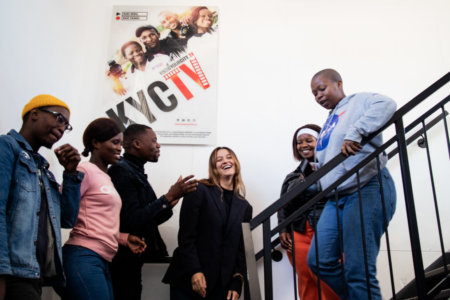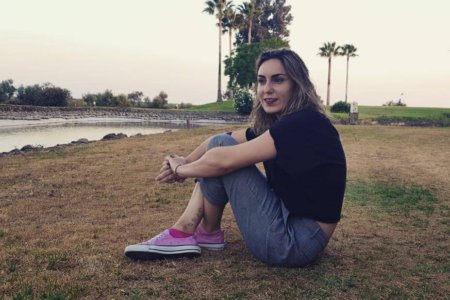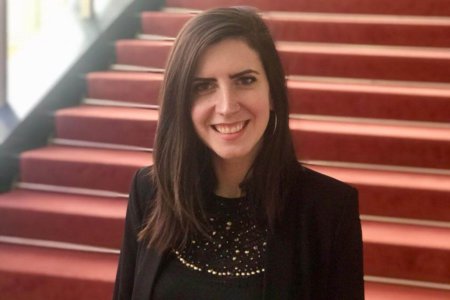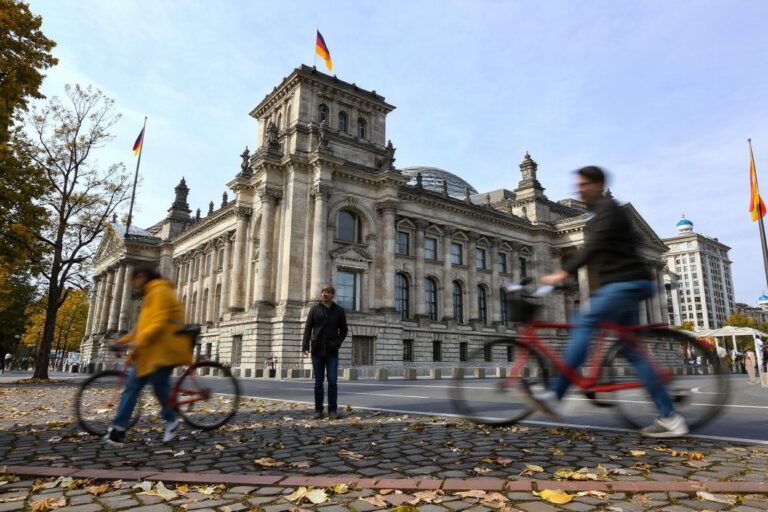
What separates top MBA programmes from others? While accreditation and a world-class education are important factors, that wasn’t enough to seal the deal for Su Bulingzi from China.
The 32-year-old applied to the top four business schools in Germany and got offers and scholarships from all of them.
For her, ESMT Berlin has several X-factors that the others didn’t: a good location, a strong network and a diverse culture.
Through the German business school’s network, students get the opportunity to interact with influential guests, including German Chancellor Olaf Scholz.
She also had the chance to put classroom learning into action through the Responsible Leaders Fellowship (RLF) programme attached to her MBA, where ESMT Berlin students work with a social organisation at the end of their studies.
The programme led her to São Paulo, Brazil, where she’s currently working with a social organisation, Vaga Lume, to bring books to kids in rural, remote areas of the Amazon.
Before deciding to study for her MBA in Berlin, she worked for trivago in Shanghai, China. Her work with the travel booking company allowed her to get to know Germany more, and she soon realised she wanted to work there.
We speak to the 32-year-old to find out more about her social work project and how her MBA is filling gaps in her business knowledge:
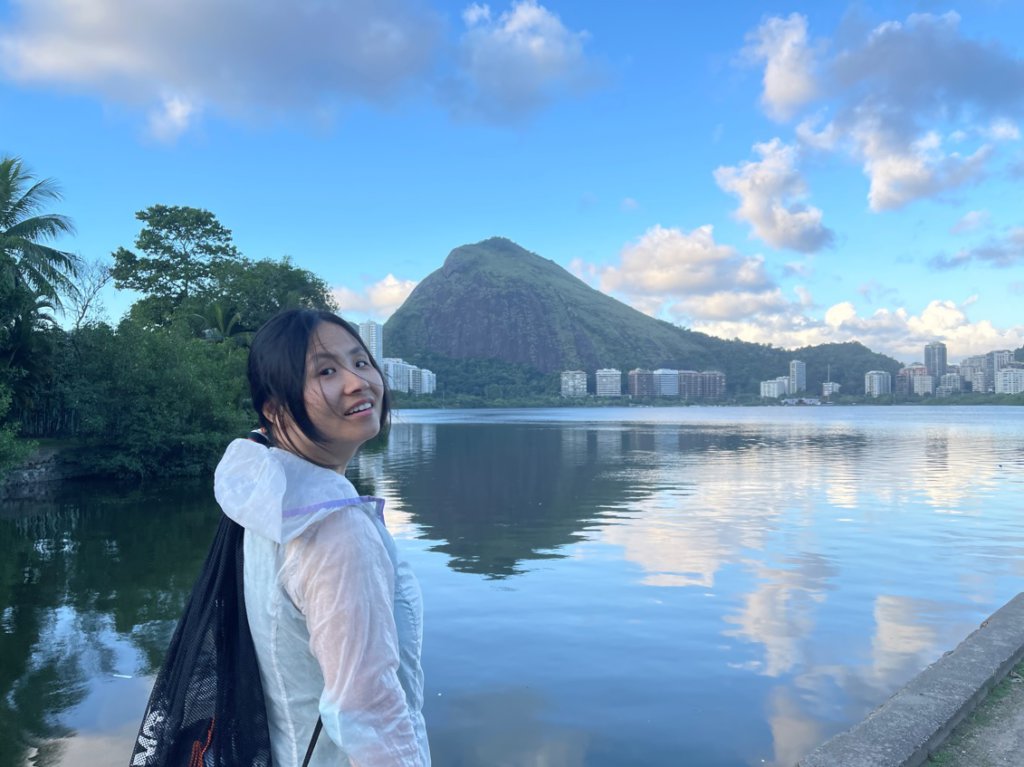
What separates top MBA programmes from others? For Su Bulingzi from China, ESMT Berlin has several X-factors that the other b-schools lack. Source: Su Bulingzi
What made you decide to pursue an MBA at ESMT Berlin?
One thing that was very clear to me was that I wanted to do my MBA studies in Germany.
I applied to the top four business schools in Germany and got offers and scholarships from all of them. One fundamental reason that I chose ESMT is because of its location. Berlin is a hub for innovation and technology in Europe, and that makes it the perfect starting point for someone like me who is interested in the internet industry.
Another very important reason is ESMT’s network – the ability to connect students with businesses is very valuable and also how we get to interact with many powerful guests that visit us, the most recent one was Olaf Scholz, the new German chancellor.
Last but not least, I chose ESMT for its strong diverse culture. We have professors from all around the world and students from my class come from more than 20 countries. For some, like me, who are interested in working in an international environment, it’s the best place to learn, fail, and to adapt to working with an international team.
Tell us about your experience with Vaga Lume in Brazil. What made you choose that specific project, and what is it like so far?
Brazil is a country that I have always wanted to visit after my volunteering experience in Venezuela. As a kid I was kind of a bookworm, so their mission to bring books to kids in rural remote areas of the Amazon excites me.
A good book is like a good trip that can bring us a new perspective on life and be an inspiration for us, just like a firefly, the English meaning of Vaga-lume, which the organisation is named after. Alongside the mission, the project itself is also very attractive. My team works with fundraising, which is an essential part for any NGO. Specifically working with international fundraising, I’m putting to test my networking skills and business expertise.
Because of COVID-19, the team hasn’t been meeting in person for the past two years. To help me, my classmate and project colleague, integrate into the team, we started to have weekly meetings biweekly from the start of the project. We even had a team event where the whole team gathered to do a walking tour in downtown São Paulo.
My team lead, Fernanda Prado, is an outstanding leader and a talented hairdresser. She knows where she wants the team to go, but she also gives us a lot of flexibility to discover what we can and want to do for the project.
My other teammates are also super smart and fun to work with. Rafael Sasso, who has a very rich and interesting career path, always knows how to prioritise “the million” tasks he has on his plate while having the patience to answer all my questions. Filipe Cincinato is the creative mind in our team and is always passionate about new ideas and telling us all about his projects.
Elisa Villaméa, freshly graduated from university, has already gained much experience in communication and partnership building during her internship with Vaga Lume.

Source: Su Bulingzi
What are some of the things that you have learned since being involved with the project?
The ability to network is very important. I’ve learned this in the MBA, but during the project, it has been reinforced even more. During the MBA I gradually built up my confidence and started to feel more and more comfortable. In the project there are many moments that I’m networking and I see myself doing so both intentionally and unintentionally.
For example, to learn how to better use the resources on an international fundraising platform, I have joined an online networking event and have been talking with many other NGOs about their experiences, collecting learnings, tips, and struggles. I’ve also introduced a girl who works in a Ugandan NGO, that is also focused on children’s education, to one of my classmates who is currently doing RLF in Uganda.
Rather unintentionally, I convinced an alumnus to donate to support my project with Vaga Lume. We were having a virtual coffee talk to understand his post-MBA journey in Germany where I introduced him to the project, and it wasn’t my intention to achieve a donation in this talk but it naturally happened.
Working and living in Brazil must be vastly different from being in China or Germany. How do you find it?
Brazil is different from Germany and, for me, a bit more like China. Unlike Germany, where almost everything is closed in the evening and on Sunday, São Paulo is alive most of the time.
The very first evening I arrived in São Paulo, people were eating, drinking, and hanging out with friends on the street, outside bars and restaurants. Bars and restaurants feel more open, usually with no windows or walls.
It reminds me of Dai Pai Dong, a type of open-air food stall in China.
During the day, every shop also keeps its doors open towards the street — not only the restaurants and the cafes, but also general commerce, gyms, and galleries.
Before my arrival in São Paulo, my colleague/classmate, who had arrived two weeks before, was already warning me that most of the people here don’t speak English. I found it true the second I arrived at the airport. I also found out that the people here are super friendly and are always happy to help.
One of the first things I needed to take care of was to get a SIM card and the girl who helped me was very patient while we communicated mainly through translating text on the phone. She even gave me her WhatsApp number and was helping me, even on holiday.
There’s also this restaurant close to the place I’m staying where the girl that usually takes my orders started calling me “amiga” from the second day — she’s always happy to see me and we also communicate a lot by translating what we say.
São Paulo has tropical weather and greenery can be spotted almost everywhere. There are big trees on the streets which serve as a perfect cover from the sun on hot days and help keep the streets cooler.
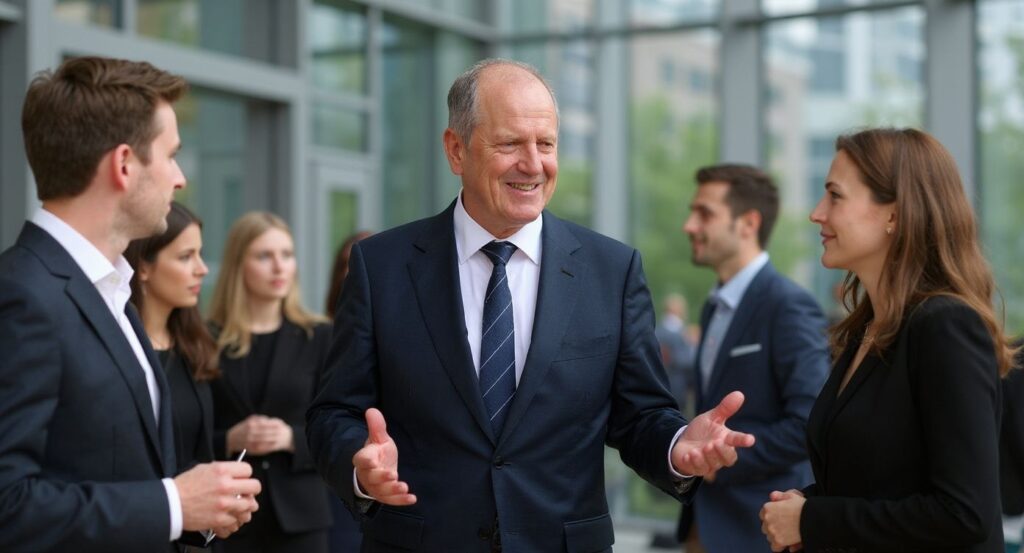 Top MBA programmes provide their students with excellent networking opportunities. Su Bulingzi said ESMT Berlin students get to interact with powerful guests that visit the institution, with the most recent one being German Chancellor Olaf Scholz.
Top MBA programmes provide their students with excellent networking opportunities. Su Bulingzi said ESMT Berlin students get to interact with powerful guests that visit the institution, with the most recent one being German Chancellor Olaf Scholz.
Have you had the chance to explore Brazil?
Exploring São Paulo has been quite interesting but adventures into the more natural side are about to come. Visiting Rio de Janeiro for a carnival has been amazing!
It’s a completely different style of city and I’ve loved to learn about its deep history surrounding colonisation and explored the nature that wraps the urban scenario. In the future, I’m planning to visit the Amazon, also as a way to learn more about Vaga Lume.
Lastly, what are your future plans?
My goal is to work as a project manager in an internet company. That is one of the main purposes for why I pursued an MBA. I’m excited to find a place where I can utilise my learnings and passion obtained from the MBA, current project with Vaga Lume, and all the interactions in between.








